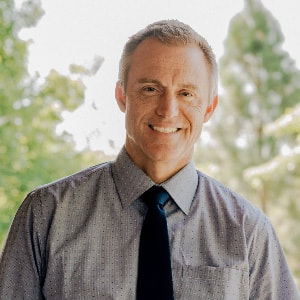Where did you attend optometry school? Do you have any school advice/study tips?
If you have any further questions for Dr. Van Buskirk, his email is: rkvanbuskirk@yahoo.com
- UC Berkeley- Really try to focus on the big picture because many of the concepts you will be taught get bogged down in the minutiae and you will miss out on the clinical relevance. I found that I typically don't need to remember many of the specific formulas whether it be an optical problem or a BV/ACC problem, but it helps to know how those larger concepts affect patient care.
- How to explain complex concepts to patients in simple terms.
- I did a residency in Low Vision Rehabilitation. I think it helps to have a year of direct patient care that forces you to think on your feet, but also allows you to be able to run ideas or problems by your mentor. It was very useful for me personally, because in LV care every single patient has a problem, so in private practice I wasn't intimidated by difficult conditions.
- I practice in a rural area of Northern California. We have no ophthalmologist for forty miles, so I see very interesting eye conditions and I can use our full scope of practice every day. I realized that my classmates that practice in and around urban centers weren't seeing eye disease as frequently and they were mostly doing refractions and fitting contact lenses, so it compelled me to stay.
- California; When I graduated we couldn't prescribe steroids, glaucoma medications or oral medications. Our state association has made significant strides in providing a full scope of care for our profession. Of course California has the best weather in the nation, but also one of the highest tax burdens. You weigh the good versus the bad in every decision in life.
- About 60% of patient base is of Medicare age. We see a tremendous amount of ARMD, Glaucoma and Dry Eye.
- I am one of four partners in my practice. I was lucky to join a turnkey practice with a healthy patient base. I bought into the practice about four years after starting there and have been practicing for a little over twenty years.
- Providing low vision services was a huge advantage to my partners when I started practicing in this community.
- All of our doctors are involved in community groups. We use a recall system called Solution Reach, but we have also found it beneficial to pre-appoint our patients for the following year if they have any medical condition that warrants monitoring. The majority of our patients actually prefer the pre-appointment technique because the understand the importance of annual exams and realize that postcards and emails are frequently ignored.
- How to manage staff issues.
- We have a second location, but I wasn't involved in the decision to open it. It was opened about 18 years after our first location was started.
- People that have worked in food service tend to be great employees. They can multi-task, they are used to working with the public and they tend to understand customer service. To be honest, hiring good employees is very difficult; you can't tell how they are really going to perform until they are in the trenches. Don't keep people around though that don't treat your patients with respect or don't get along with other staff.
- I don't think we have done anything to set ourselves apart except just treating people well. Make your patients feel that you truly care about them and their needs, be less concerned with the revenue or expenses of the practice and more about making patients value you and your staff. The rest takes care of itself.
- Always make a note in your patient's chart about some sort of personal characteristic or an event happening in their lives. Their profession, any trips they have planned, hobbies, number of children or grandchildren. Having this information not only helps jog your memory about the patient, but they will appreciate you taking interest in their lives apart from just their eyecare.
If you have any further questions for Dr. Van Buskirk, his email is: rkvanbuskirk@yahoo.com
